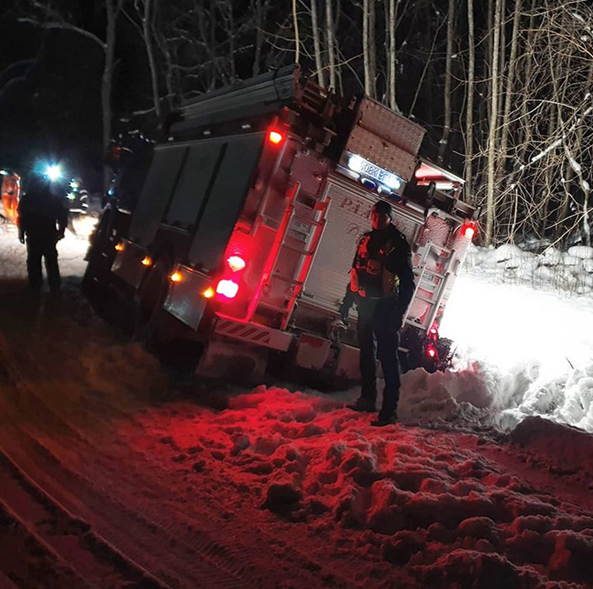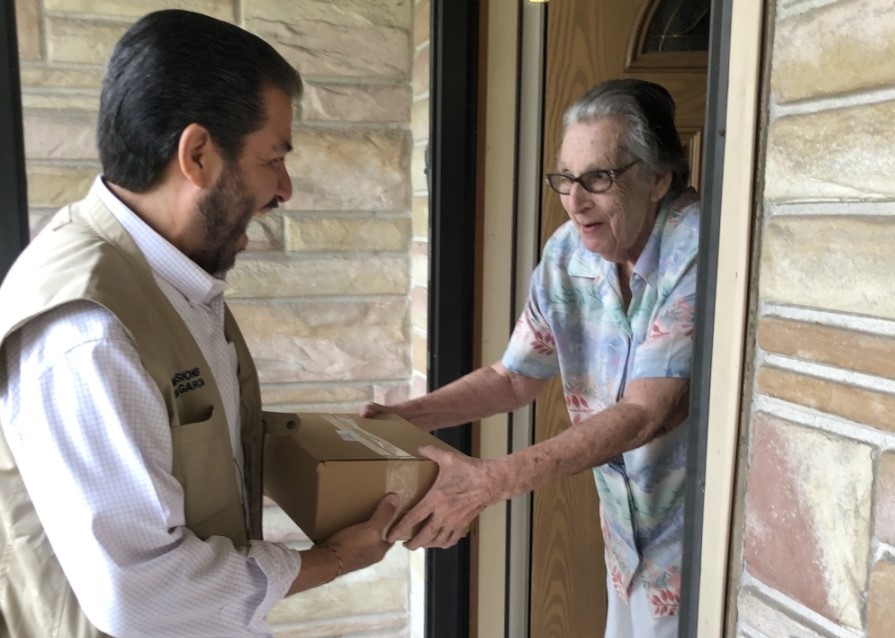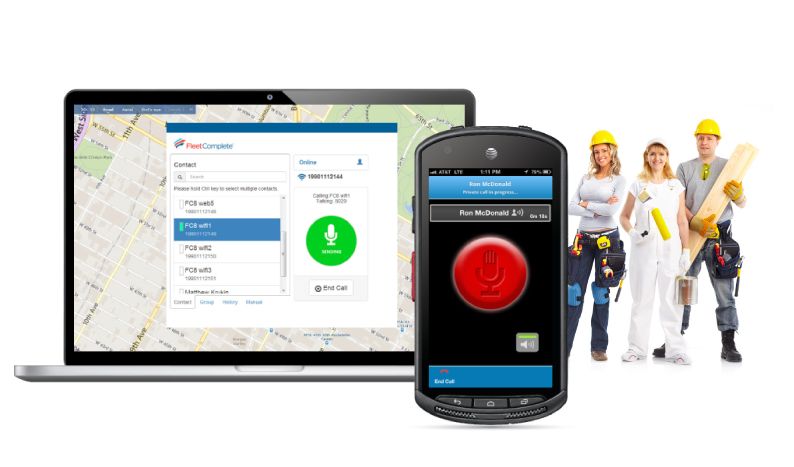As we sat down to talk to Matis Indov over a video call, he was wrapping up his workweek as Powerfleet’s (formerly Fleet Complete) Export Manager in Estonia. His day, however, was far from over, as after our call he would prepare to start a new shift – one that he does every other Friday – as a volunteer police officer.
We’ll dive into what exactly a volunteer police officer is and their role in Estonia in a bit, but first, let’s introduce Matis.
Export Manager by day, volunteer police officer by night, Matis is certainly a busy guy. Still, he always has time for his most-loved roles: as a fiancée and a father.
“I have two amazing kids. My son is nine years old, and my daughter is eight months old,” Matis said. “I have an incredible fiancée, and we will be getting married this summer.”
With a loving family at home, it’s not always easy for Matis to head out as a volunteer police officer – a job that doesn’t come without its share of risks. So, what led him to join in the first place? Well, it’s his strong desire to keep Estonian communities safe that inspired him to seek a position on the force.
Specifically, an influx of drunk driving and the resulting fatal accidents pushed Matis’ decision: “These cases [of drunk driving] made me so angry. Those kinds of people need to be stopped. So, when I saw a campaign looking for volunteer police officers, I knew that I wanted to apply,” Matis said.
With over 1100 working hours accumulated since choosing to volunteer, he is set to begin his fifth year on the force this May.
Now, to offer some context on this milestone and what Matis does, let’s get into what it means to be a volunteer police officer.
In Estonia, there is a special group of individuals – governed by the Police and Border Guard Board (Politsei- ja Piirivalveamet (PPA)) – called Assistant Police Officers, who go out of their way to give back to their community. Joining the force on a volunteer basis, these members complete training and certification, and share similar responsibilities to a full-time officer.
With a population of roughly 1,327,000, Estonia is a smaller country in Northern Europe that relies on the help of these volunteers to round out the police force and help protect its communities – especially those that are less populated.
“[Using Assistant Police Officers] is how security can be ensured in the more remote areas of the counties, where the presence of uniformed personnel and visibility are extremely important,” said PPA’s Varmo Rein in an interview.
Matis can relate – as his shifts are often spent in the small Estonian community of Lääne-Harju Parish, where approximately 13,000 residents disperse over six small towns and 46 villages.
While Matis has had to respond to an array of calls during his time as a volunteer, it was in one of these small villages, called Pae, where he had a particular shift that reminded him exactly why he does what he does:
It occurred on a dark and cold December evening when an 80-year-old woman was reported missing after she did not return home hours after heading out for a short walk.
“We were just out doing our normal patrolling when we got the call,” Matis said of responding to the emergency. “Once we arrived to meet the missing women’s daughter and other family members, she told us her mother had been doing daily walks, but she was always home by 5:00 PM. When they found out she wasn’t back at her normal time, they tried to search for her by themselves but soon realized they needed help.”
With the call coming in around 7:00 PM, this meant that the women had already been missing for hours. Considering the freezing temperature hovering below -10°C (14°F) and a lack of daylight, Matis and the officers knew that finding her as soon as possible was critical for her survival.
Luckily, the officers weren’t searching alone. The locals in Pae were eager to assist, with one individual offering a key lead to help find the missing person.
“A local man mentioned to us that he had cameras set up in the woods and swamp areas that he uses for hunting,” Matis explained. “So, we went through the camera footage and were able to spot the missing women walking through the forest. This gave us our direction of where to go to find her.”
After arriving at the area where the women had last been seen on the camera footage, Matis and the officers were fortunate to discover that her footsteps remained imprinted in the snow. While this provided a path to follow, the tough terrain didn’t make it an easy trek.
“It was a swamp area, so we were walking on thin ice that we all kept falling through, but it was only as deep as our knees so we could keep going,” Matis described. “Even the emergency vehicles and ATVs weren’t able to make it through this area and got stuck.”

Despite the difficulties, Matis and the team of rescuers managed to locate the woman. “She was waist-deep in water when we found her. She wasn’t responsive at the time, but thankfully she was still breathing,” said Matis. After wrapping her in thermal blankets to help warm her up, the rescue team was able to get the woman back to the ambulance using the only vehicle able to withstand the unstable terrain – a snowmobile borrowed from another helpful local.
“When we got her back to the ambulance, they told us that she likely would not have made it much longer than one or two more hours,” Matis recalled. “We were lucky to find her when we did.”
As for what caused the event, it was discovered that the woman mistakenly wandered into the swamp area after becoming disoriented in the darkness.
About a week after the rescue, the police force received a letter from the woman’s family thanking them for saving her and informing them that she was back at home after making a full recovery.
Made possible by the unwavering efforts of Matis, the officers, first responders, and locals, the rescue was a testament to the character of everyone involved. If not for their combination of strong community spirit and determination, the outcome that night might not have turned out as positive as it did.
It’s stories like this – that highlight the selflessness seen in Matis and the community – that act as a reminder: lending a helping hand when we’re able to can go a long way – perhaps even as far as saving someone’s life.












